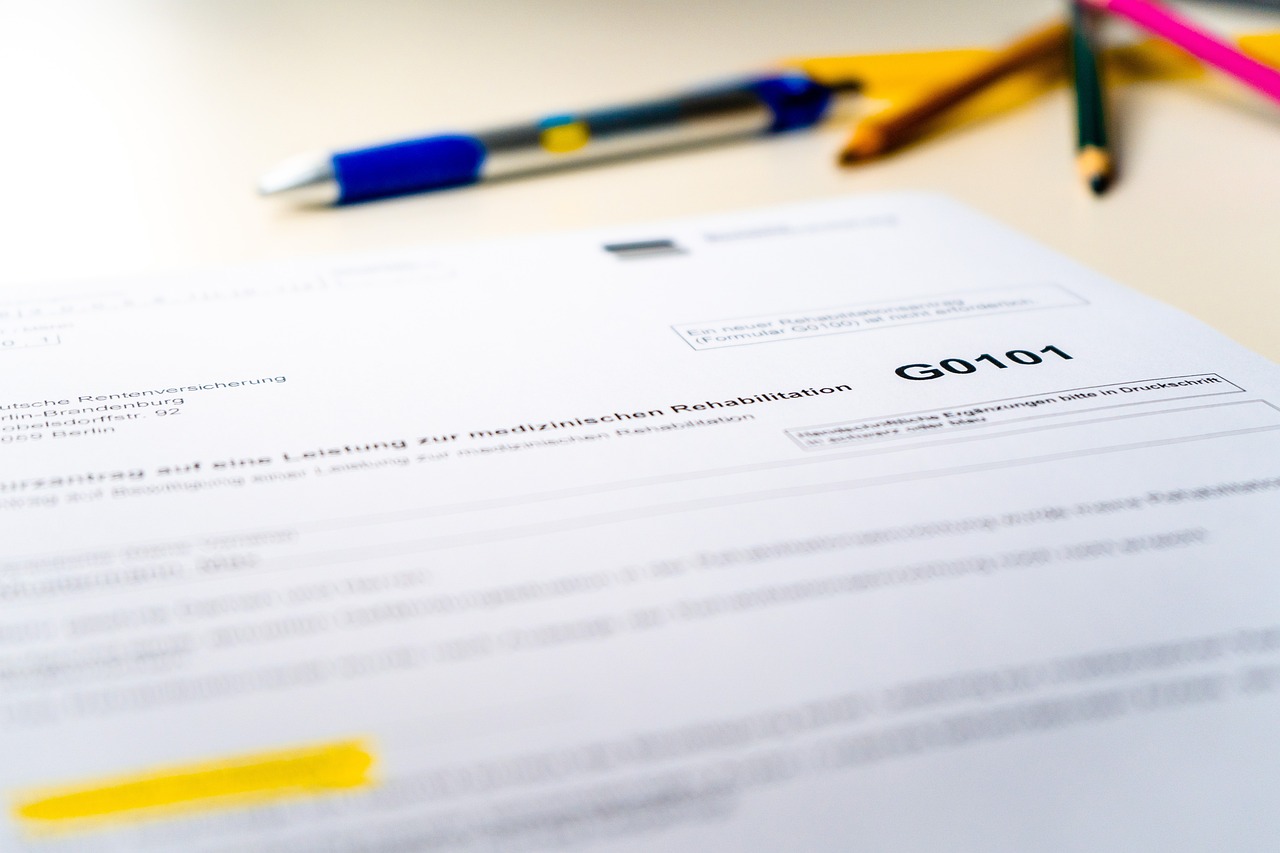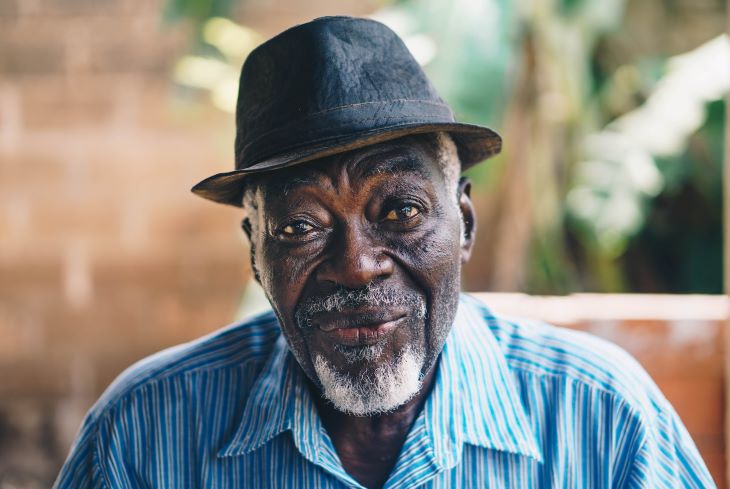Despite both terms being used in similar contexts, there is a crucial difference between methadone addiction and dependence.
While the use of each term points to hazardous use, they are indicative of different severities.
It’s important to understand their definitions when considering each style of methadone detox.
In the past, clinicians referred to someone being “addicted” when they showed an intense physical reliance on opioid drugs.
The distinction was drawn if another individual showed purely psychological symptoms, such as cravings. In these cases, they were described as having a “dependence“.
Experts have since realised that drawing such distinct lines between physical and psychological isn’t useful when diagnosing such a complex condition.
They updated the term “dependency” to describe patterns of hazardous drug use that have not yet taken over an individual’s life.
This is particularly apt for many methadone users who begin their relationship with the drug in a medical scenario.
At Rehab 4 Addiction, we offer free advice from a team of non-judgemental professionals, many of whom are in recovery and understand how hard can be to change your relationship with addiction.
If you’d like more information about methadone detox, simply reach out to our 24/7, confidential hotline on 0800 140 4690.

At first, methadone is taken to manage pain or substitute for other drugs such as heroin.
However, many people start to take the drug beyond their prescription: becoming increasingly dependent on the high it instils.
At this stage, the individual’s methadone use has not taken over their responsibilities and daily activities.
However, as time goes on, they will likely develop an addiction: wherein methadone takes over all aspects of their life.
It’s in this scenario that dependency turns into full-blown codeine addiction.
Therefore, someone who is dependent on methadone may be eligible for an outpatient detox: due to their lowered risk of experiencing withdrawal.
However, those with an undisputable methadone addiction, otherwise known as methadone use disorder, should seek an inpatient detox.

While the opioid painkiller is often used to treat individuals suffering from other opioid use disorders, methadone’s addictive potential remains.
When taken as prescribed during substitution therapy or to relieve pain, methadone can be incredibly useful; however, individuals can experience a high if they take more than usual, or at higher frequencies.
When an individual abuses methadone for recreational purposes or takes more than they are originally prescribed, they are at a much higher risk of developing the disease known as Methadone Use Disorder (MUD).
This leads to physical and psychological symptoms as methadone dependence becomes a diagnosable addiction.
This is because methadone works on the same receptors in your brain that other opioids like heroin or oxycodone do.
Therefore, it has the same potential to become addictive over time.
Developing a full methadone use disorder will also depend on an individual’s genetic predispositions, environment, social life, and substance use history such as polydrug use.

However, in contrast to those addicted to opioids such as heroin, methadone users are more able to function effectively and continue with their responsibilities.
As such, it might be harder to spot an individual’s symptoms of methadone addiction, especially if they are still going to work or taking care of their family.
As such, it’s important to recognise the common warning signs of MUD that make undergoing a proper methadone detox so important.
The DSM-5 diagnostic manual states that MUD victims will show increased methadone tolerance, continue to use despite the consequences, and exhibit adverse symptoms after a missed dose.
At Rehab 4 Addiction, we offer free advice from a team of non-judgemental professionals, many of whom are in recovery and understand how hard can be to change your relationship with addiction.
Simply reach out to our 24/7, confidential hotline on 0800 140 4690.

While methadone’s longer half-life means withdrawal symptoms are unlikely to be as severe as other opioids, a medicated detox is nevertheless required to withdraw from the drug.
Professionally supervised detox is the first phase of most people’s recovery journey, followed closely by behavioural therapies in a residential treatment setting.
Detoxification describes the process of allowing a substance, in this case, methadone, to leave the body gradually.
Depending on the severity of someone’s methadone dependence or addiction, the detox process can take anywhere from a few days to a few weeks.
By stabilising the brain and body through a supervised methadone detox, patients can move on to resolve the behavioural and/or psychological causes of their addiction via further treatment.
To make sure patients have the best chances of recovery and treatment retention, their withdrawal symptoms must be managed by placing detox at the beginning of their programme.
Due to their potential for experiencing severe withdrawal, long-term methadone users should approach detox with caution and the proper guidance.
To manage their physical and mental symptoms, a detox complete with 24-hour care and comprehensive medical assistance should be sought.
Moreover, whether they started taking methadone recreationally or medically, each undergoing a supervised detox will be given a bespoke strategy.
Their consultant, addiction specialist, or doctor will create a personalised methadone detox plan to help them begin recovery optimally.

Detox plans are shaped by addiction severity, separate health issues, lifestyle choices, and personal treatment preference. Nonetheless, each clinician will design a detox strategy with the following structure in mind:
At Rehab 4 Addiction, we offer free advice from a team of non-judgemental professionals, many of whom are in recovery and understand how hard can be to change your relationship with addiction.
Simply reach out to our 24/7, confidential hotline on 0800 140 4690.

The online realm of addiction treatment is often flooded with articles asking “is it safe to detox from drugs at home?”.
The process itself, as suggested by the name, involves someone allowing methadone to leave their bodies at home without travelling to a clinical centre.
While undergoing detox at home is a viable option for some addicted individuals, it is not without danger.
Before committing to this detoxification strategy, it’s vital to understand the risks involved and make an informed decision alongside your loved ones and a health practitioner.
Most specialists in the field of painkiller dependency treatment advise against home methadone detox due to withdrawal-related risks.
Detox is a potentially uncomfortable process often leading to various physical and mental symptoms as the system adjusts to this new state of being.
This process is often exacerbated when individuals attempt to quit “cold turkey“: the abrupt or sudden cessation of methadone use that doesn’t include a tapering process.
This lack of tapering (gradually reducing methadone levels) produces unmanageable symptoms often compared to a bout of flu: including muscle aches, joint pain, runny nose, and stomach cramps.
Obvious methadone withdrawal symptoms often begin within 24 hours of an individual’s last methadone dose and indicate a physical dependence.
With proper medical assistance, these symptoms often abate within the first two to three weeks after stopping methadone.
However, long-term users are likely to develop health complications without proper supervision during their detox.
These include intense difficulty sleeping, depression, or cravings for methadone.
This may be a sign of post-acute withdrawal syndrome (PAWS): a chronic condition requiring long-term care.

With this in mind, MUD victims trying to complete their home detox may suffer such severe symptoms of withdrawal that they relapse.
Resuming methadone use may seem like the only option when faced with physical and mental discomfort: especially when medical assistance is so far away.
In addition to the symptoms of withdrawal, a home methadone detox may put individuals with co-occurring disorders in danger.
In these cases, an addicted individual is suffering from both their methadone use disorder, and a mental health condition such as anxiety, depression, or psychosis.
These simultaneously occurring conditions create a complex set of needs that often cannot be addressed at home without medical assistance.
Oftentimes, the brain’s attempt to regain normal function during detox causes psychological symptoms to worsen.
This means that individuals with comorbid disorders will feel especially uncomfortable, and must be placed in a clinical environment that can effectively manage their withdrawal process.
At Rehab 4 Addiction, we offer free advice from a team of non-judgemental professionals, many of whom are in recovery and understand how hard can be to change your relationship with addiction.
Simply reach out to our 24/7, confidential hotline on 0800 140 4690.

With private treatment for opioid addictions costing thousands, it’s no wonder that many individuals seek the more affordable option of detoxing at home.
However, due to the associated risks of a home detox and withdrawal process, patients must pass an eligibility test that considers their unique circumstances.
The first group of people likely to be eligible for a home methadone detox are those with mild addictions.
These individuals have a reduced risk of experiencing withdrawal, and can usually manage mild symptoms with rest, hydration, and proper nutrition.
Despite this, those with a mild enough dependency for home detox must have a supportive network surrounding them.
This will mean that there is someone to turn to if the MUD victim experiences cravings or mild physical symptoms, as well as any lapse in motivation or emotional stress.
At Rehab 4 Addiction, we offer free advice from a team of non-judgemental professionals, many of whom are in recovery and understand how hard can be to change your relationship with addiction.
Simply reach out to our 24/7, confidential hotline on 0800 140 4690.

Another important part of home detox eligibility is how well someone can function.
Regular contact with a GP or clinician should be maintained, and even pick up prescriptions for symptom management.
Unfortunately, the harsh reality of addiction treatment is that recovery is rarely linear, and methadone relapses do occur.
In these situations, a home detox may be the perfect option, especially if the individual has undertaken an inpatient detox before and knows what to expect from the process.
They can recover in their own home and avoid the fees of a privately-funded inpatient detox for opioid addictions.
However, they should be able to set aside around 10 days for the detoxification process.
If you resonate with any of the aforementioned situations or know someone who does, it might be worth researching your home methadone detox eligibility.
This decision should be made under the guidance of a healthcare professional, or a psychiatrist who can accurately assess your addiction severity and needs.
Health evaluations including psychological assessments can be accessed either through the NHS or a private methadone rehab in your local area.
They’ll consider your potential for a home detox in light of various factors.
This means taking into account how long a patient has been using methadone, their dosage, unique lifestyle factors, and any pre-existing conditions.
They’ll also ask their patient to give an accurate description of their home environment, including the potential for relapse triggers or exposure to methadone during their detox.

As an important treatment strategy, detox can be performed in a variety of settings and should always be a personalised process.
Although home detoxification is a popular option in the UK, there are various other treatment modalities to suit different financial situations, substance use histories, and personal preferences.
These are classed as either outpatient or inpatient detoxification strategies.
At Rehab 4 Addiction, we offer free advice from a team of non-judgemental professionals, many of whom are in recovery and understand how hard can be to change your relationship with addiction.
Simply reach out to our 24/7, confidential hotline on 0800 140 4690.

Medical supervision at an inpatient detox centre ensures that, if an issue arises, you have a team on hand to care for you.
Unlike home methadone detox methods and outpatient treatment, inpatient detoxification provided round-the-clock support, with patients living temporarily on-site.
From the moment they are admitted to the end of their detox and beyond, inpatients are constantly supervised by medical professionals who are dedicated to their safety and comfort.
Inpatient detox centres offer clients nutritional support, emotional assistance, medical supervision, and long-term aftercare/further treatment options.
After performing a pre-admission assessment, on-site addiction specialists will decide whether their patient requires medically assisted treatment (MAT).
More often than not, MUD victims are prescribed medication to assist them in their methadone detox by maximising their comfort.
Mild withdrawal symptoms can be treated with Tylenol, aspirin, Immodium, or anti-inflammatory drugs such as ibuprofen.
Hydroxyzine may also be prescribed to ease nausea: a common symptom during detox.

However, many individuals will have been prescribed an inpatient methadone detox because their addiction is moderate to severe.
In these cases, the risk of severe withdrawal is greater, and drugs such as clonidine are often implemented.
Clonidine may reduce the sympathetic nervous system responses that cause hypertension, sweating, and restlessness.
While MAT is an important component of an inpatient drug detox, its success is often limited without the implementation of behavioural therapies.
Inpatient facilities often allow their patients to receive counselling sessions and holistic therapies designed to cultivate a healthier lifestyle and a better stress response.
At Rehab 4 Addiction, we offer free advice from a team of non-judgemental professionals, many of whom are in recovery and understand how hard can be to change your relationship with addiction.
Simply reach out to our 24/7, confidential hotline on 0800 140 4690.

Allowing for more freedom than inpatient treatment programmes, outpatient detox is a popular alternative, especially for high-functioning MUD victims.
Instead of staying overnight, patients aren’t required to spend a certain period of time at a rehab centre.
Instead, they live at their own home and attend behavioural therapy sessions according to the provided schedule.
In the context of detox, outpatients receive an initial consultation with a professional in which a treatment strategy and appointment schedules are created.
During these appointments, individuals meet with their doctor to talk about how their methadone detox is progressing and may be prescribed medication to make them more comfortable.
The frequency of these appointments will depend on someone’s severity, and how long methadone has been in control of their life.
Those with acute MUD must have clinical contact and receive medication every day, while others can visit their doctor’s surgery or hospital weekly.
This ability to remain living at home with detoxing makes outpatient treatment styles optimal for those able to continue living a normal life while withdrawing from methadone.
Hospital appointments can be arranged in the evenings to revolve around an individual’s work schedule or can be adapted to suit childcare and other important responsibilities.
Although outpatient detox programmes aren’t as comprehensive as inpatient methods, they do provide some services outside of a tapering strategy.
Depending on the context of an individual’s addiction, professionals may offer counselling sessions or access to group support therapy in their community.

After overcoming withdrawal, those suffering from MUD will encounter various therapy styles to solidify and further the healing achieved in their methadone detox.
Each therapeutic method has its principles and overarching strategy, from healing past trauma and repairing rifts in the familial unit, to tackling relapse triggers.
At Rehab 4 Addiction, we offer free advice from a team of non-judgemental professionals, many of whom are in recovery and understand how hard can be to change your relationship with addiction.
Simply reach out to our 24/7, confidential hotline on 0800 140 4690.

Therapeutic communities, also known as group support therapy occur when there is at least one specialised therapist using interventions based on cognitive and behavioural principles to help a group of people.
For those attempting to break free from their methadone use disorder, group therapy is a crucial way of understanding more about their addiction, and the journeys of other people.
Learning about the experiences of our peers can help us see that our issues aren’t as all-encompassing as we think, and that help is available in the form of friendship and advice.
There are several different types of therapy groups used to treat methadone addiction, including skills development groups, psychoeducational groups, and cognitive behavioural groups.
Sessions cover a range of topics and include various activities.
These include identifying and discussing relapse triggers, discussing gratitude, the impact of methadone, and making a list of activities outside of methadone use.
Patients are referred to group support therapy workshops usually right away following their methadone detox.
This can be in a residential or outpatient capacity depending on the unique details of their recovery programme.

As with other substance use disorders, methadone addiction is a condition that affects every aspect of someone’s life: including their relationships.
Even after a successful detox, the damage that addictive behaviours have inflicted on someone’s relationships remains.
It’s for this reason that Family Behavioural Therapy (FBT) methods are integrated into the majority of treatment programmes.
Therapeutic methods involving a patient’s family members or close friends have a dual primary aim.
This is to reduce the negative impacts of methadone addiction on the patient and their loved ones, while simultaneously strengthening familial relationships.
In most cases, methadone use has led to issues of trust in the family, often because the addicted person’s condition has caused them to lie to or manipulate family members.
As a result, the entire family unit suffers from emotional distress and must heal from this behaviour by discussing their feelings with their addicted loved one.
FBT sessions are most effective when carried out in a clinical setting such as a therapist’s office or a methadone rehab clinic.
Workshops should also begin after the patient has undergone their methadone detox are no longer intoxicated.
In addition, a trained therapist should lead the meeting and provide a non-judgemental, professional presence.
During FBT meetings, participants will undertake a range of activities, from learning more about methadone addiction, to discussing the impact the addiction has had on them and how they can move forward.

Abbreviated as CBT, Cognitive Behavioural Therapy is one of the most popular treatments for MUD, with programmes starting shortly after detox.
It was invented by Psychiatrist Aaron T in the 1960s who found through his practice that when people changed underlying beliefs about themselves, their environments, and others, they experienced a lasting change in their behaviour.
In the context of MUD, cognitive behavioural therapy empowers individuals to break the cycle of allowing negative thoughts to lead to methadone use.
CBT sessions allow subjects to explore the positive and negative consequences of continued methadone use, self-monitoring to recognize cravings early on, and develop strategies for coping with cravings.
CBT sessions in methadone rehab can be administered in group or individual settings depending on the needs of a specific patient.
Each location equips clients with the ability to identify dysfunctional thought patterns, which in turn empowers them to practice behaviours and attitudes of self-respect.
At Rehab 4 Addiction, we offer free advice from a team of non-judgemental professionals, many of whom are in recovery and understand how hard can be to change your relationship with addiction.
Simply reach out to our 24/7, confidential hotline on 0800 140 4690.

DBT is a well-established treatment for all substance use disorders, including methadone addiction.
Since it was developed in the 1980s, DBT has been used to help patients uncover the root cause of their addictive behaviours by managing their emotions.
This multi-approach form of psychotherapy, unlike CBT, is modified to treat those with co-occuring disorders of emotional trauma behind their methadone misuse.
It treats these individuals by teaching emotion regulation skills, mindfulness, interpersonal effectiveness, and distress tolerance.
By keeping their emotions in check, patients can better assess their willingness to tackle their methadone addiction problem.
A dialectical approach to therapy aims to combine two opposing viewpoints.
In the case of substance use disorder treatment, these are acceptance and change.
During their DBT sessions, patients are taught how to accept their negative feelings and past trauma as a part of themselves, whilst also working to change and improve their lives.

Contingency Management (CM) is a popular type of behavioural intervention used after methadone detox to reinforce abstinence.
It is rooted in the technique known as operant conditioning: the belief that you can teach someone through the use of rewards and punishments.
This is achieved through incentivised recovery methods.
For example, patients will receive a tangible reward for providing a clean drug test, meeting the needs of their treatment programme, or reaching an abstinence milestone.
To ensure its prolonged success, CM treatment programmes also offer a bonus scheme which keeps motivation levels high.
This means that the more clean methadone tests a patient accumulates, the higher value their rewards will be.
The value of their vouchers may increase, and the activities on offer might become more desirable.
At Rehab 4 Addiction, we offer free advice from a team of non-judgemental professionals, many of whom are in recovery and understand how hard can be to change your relationship with addiction.
Simply reach out to our 24/7, confidential hotline on 0800 140 4690.

A fairly recent addition to methadone recovery programmes, Holistic therapies (HT) was once scorned by academics for their exclusion from medical treatment.
Instead of addressing addiction symptoms, HT takes an entire individual into account when treating their condition: including their mind, body, and spirit.
Thanks to its ability to help SUD victims develop a healthier lifestyle, HT is now a popular treatment method.
By encouraging patients to take up new hobbies and try new, mindfulness-based activities, problems such as stress, poor nutrition and health can be addressed.
HT programmes are often implemented after a patient has stabilised during their detox.
They allow patients to choose from a range of HT workshops: providing classes in physical health, nutrition, artistic skills, and many more.
Some more specific examples include breathing-focused meditation, pilates or yoga, cooking classes, and martial art practice.

For someone who hasn’t experienced problematic methadone use first-hand, it can be difficult to understand the feelings of denial and shame that can plague an addicted individual.
The benefits of undergoing a detox and further treatment might be obvious to family members, but accepting this is often a difficult process for MUD victims.
Whether your loved one is refusing treatment because they cannot accept their addiction, or are denying help out of shame, help is available via an intervention.
Family members can stage a professional intervention by contacting an interventionist in their local area: a process that we can help you with here at Rehab 4 Addiction.
A methadone intervention is often the first step in guiding a loved one towards the help that they so desperately need.
It is a psychiatric technique that involves a group of important people in an addicted person’s life meeting simultaneously to share their thoughts and emotions with the MUD victim.

Each intervention will play out differently depending on the receptivity of the individual and their level of self-awareness.
However, by meticulously planning an intervention, family members can optimise its chances of success.
An intervention may also be a long-winded process: often taking place over multiple sessions.
In these meetings, participants will read out impact statements and provide specific examples of an individual’s problematic behaviour.
In the end, it’s hoped that the addicted person will see sense and accept treatment via methadone detox and ongoing rehabilitation.
While planning an intervention without professional help is possible, it can be an emotionally draining, overwhelming process.
As such, many families elect to seek the help of a trained interventionist: a professional who can facilitate and optimise the entire process.
To help families deliver an effective intervention, these mental health professionals or therapists follow a set of guidelines.
At Rehab 4 Addiction, we offer free advice from a team of non-judgemental professionals, many of whom are in recovery and understand how hard can be to change your relationship with addiction.
Simply reach out to our 24/7, confidential hotline on 0800 140 4690.

This criterion is clinically-approved and confounded by research. The principles are as follows:

Taking the first step towards recovery starts with accessing your personalised methadone detox strategy.
If you’re ready to break free from your methadone addiction or know someone in need of professional guidance, don’t hesitate to reach out and discuss your options.
Escaping the cycle of methadone addiction can be an unpleasant process.
It can also be safe and comfortable when undertaken in a medical environment with professional help.
By calling a Rehab 4 Addiction expert on 0800 140 4690, you’ll be one step closer to starting your methadone detox.
They’ll start the process of getting you the help you need by arranging a free health evaluation.
One of our consultant psychiatrists will sympathetically assess your methadone dependence, and unique potential for withdrawal, alongside your personal preferences to create a suggestion for treatment.
Here at Rehab 4 Addiction, we specialise in partnering with leading methadone rehab clinics and detoxification centres.
To help you decide where best to begin your bespoke methadone detox, our referrals team will guide you through the plethora of options, and build a recommended treatment plan to get you started on your road to recovery.

[1] Methadone Matters: Evolving Community Methadone Treatment of Opiate Addiction Methadone Matters: Evolving Community Methadone Treatment of Opiate Addiction – Google Books
[2] Methadone-Associated Overdose Deaths: Factors Contributing to Increased Deaths and Efforts to Prevent Them Methadone-Associated Overdose Deaths: Factors Contributing to Increased … – Kathleen M. King – Google Books
[3] Unbroken Brain: A Revolutionary New Way of Understanding Addiction Unbroken Brain: A Revolutionary New Way of Understanding Addiction – Maia Szalavitz – Google Books
[4] Motivational Interviewing https://www.racgp.org.au/afp/2012/september/motivational-interviewing-techniques
[5] Cognitive Behavioural & Relapse Prevention Strategies Cognitive Behavioural & Relapse Prevention Strategies (unodc.org)
[6] DSM-5 Criteria Psychiatry.org – DSM-5 Fact Sheets
[7] 12-Step Facilitation Therapy https://pubs.niaaa.nih.gov/publications/projectmatch/match01.pdf
[8] Frontiers – Resocialising the Vulnerable Brain: Building an Ethically Sustainable Brain Disease Model of Addiction https://www.frontiersin.org/articles/10.3389/fsoc.2018.00039/full#:~:text=The%20brain%20disease%20model%20of%20addiction%20(BDMA)%20states%20that%20addiction,is%20portrayed%20in%20the%20model.
[9] Drug Misuse in England and Wales: Year Ending March 2020 https://www.ons.gov.uk/peoplepopulationandcommunity/crimeandjustice/articles/drugmisuseinenglandandwales/yearendingmarch2020
[10] Methadone: medicine used to treat heroin dependence Methadone – a medicine used to treat heroin dependence – NHS (www.nhs.uk)
[11] The Dialectical Behavior Therapy Skills Workbook: Practical DBT Exercises for Learning Mindfulness, Interpersonal Effectiveness, Emotion Regulation, and Distress Tolerance The Dialectical Behavior Therapy Skills Workbook – Google Books
[12] Cognitive, Clinical, and Neural Aspects of Drug Addiction Cognitive, Clinical, and Neural Aspects of Drug Addiction – Google Books
[13] The Ultimate Guide to Coping with a Drug Addiction: Self-Help, Treatment Options & Recovery The Ultimate Guide to Coping with a Drug Addiction: Self-Help, Treatment Op… – Google Books
[14] Guidelines for the Psychosocially Assisted Pharmacological Treatment of Opioid Dependence Guidelines for the Psychosocially Assisted Pharmacological Treatment of Opi… – Google Books
[15] Methadone-related Overdose Deaths: Factors and Prevention Measures Methadone-related Overdose Deaths – Google Books
[16] Adult Substance Misuse Treatment Statistics 2020 to 2021: Report https://www.gov.uk/government/statistics/substance-misuse-treatment-for-adults-statistics-2020-to-2021/adult-substance-misuse-treatment-statistics-2020-to-2021-report
[17] Deaths Related to Drug Poisoning by Local Authority https://www.ons.gov.uk/peoplepopulationandcommunity/birthsdeathsandmarriages/deaths/datasets/drugmisusedeathsbylocalauthority